Metropolitan
Brief Synopsis
Cast & Crew
Richard Boleslawski
Lawrence Tibbett
Virginia Bruce
Alice Brady
Cesar Romero
Thurston Hall
Film Details
Technical Specs

Synopsis
As she attempts unsuccessfully to repair her stalled car sixteen miles outside of New York City, Anne Merrill switches the car radio from a cowboy song to opera and begins to sing along. Thomas Renwick, carrying fishing gear nearby, joins her in song and offers to help with the car. After he reveals that he sings with the Metropolitan Opera, he catches his bus still carrying Anne's wrench. She then discovers that he left his fishing bag with one small fish inside. While watching a performance at the Met, Anne spies Tom through her binoculars nearly hidden among the background singers. When her escort, Niki Baroni, whose proposals she has refused because she wants to have a singing career, learns of her interest in Tom, who is his friend, he promises to take her to meet him. After the performance, temperamental diva Ghita Galin berates the opera director Moselli for not choosing her for the lead and then threatens to form her own opera company. Although Tom is scheduled to play Amonasro in Aida when the lead cannot go on because of illness, Maselli substitutes a known singer because Tom has no name or reputation. Feeling that he needs to prove himself, Tom quits the Met. That night, Niki brings Anne to Tom's home. In the midst of their conversation, Ghita, who was infatuated with Tom in Naples, calls and says that she wants him as artistic director of her new opera. Tom convinces her to hire as her conductor Papa Perontelli, a former conductor at La Scala whose career went downhill after he quit because he lost his temper and became an alcoholic. In Philadelphia, where Ghita has leased a theater for tryouts, Papa is exasperated because of her tardiness for rehearsals, and Tom is touchy about gossip linking him romantically with Ghita, who has been trying to seduce him. After a run-in with Ghita, Papa is persuaded not to quit by manager Ugo Pizzi, who reminds him how much the performance means to Tom's career. However, when on a whim, Ghita decides to switch from The Barber of Seville to Carmen , Papa walks off and leaves in a cab. Tom and Anne, who is a singer in the show, chase after him, but once they are in the country, they discover that they have followed the wrong cab. After they are inticed to have tea by a couple of children, Tom confesses that he loves Anne, who says she is very happy. Just then, Papa's cab stops, and Tom succeeds in getting him to come back. When Ghita hears Anne sing a beautiful aria, she interrupts and jealously demands that either Anne or she goes. Although Tom tells Anne that he will leave, she convinces him to stay and he kisses her. When Ghita's voice cracks in the midst of an aria, she blames Papa and declares that there will be no opera. Tom talks with the creditors, and he is given until six that night to raise $11,000. When things look hopeless, Anne learns about the situation, and as she writes Tom a check for the amount, she reveals that she is really Anne Merrill Beaconhill of the wealthy Boston family, but that she wanted to make it as a singer on her own. Tom gathers the company together and tells them they will perform Pagliacci and Cavalleria Rusticana , but no one can find Papa. Tom and Anne, who rehearses for the female lead, plan to get married if the show goes well. The rehearsals are very straining for Tom, who feels that they need a genius like Papa to bring the company together. Papa finally returns and on the night of the opening reminds Tom that he must not fail. Despite being near exhaustion, Tom sings magnificently. During the exuberant ovation, after Tom takes his bow, he kisses Anne backstage. She tells him to take another one, whereupon he kisses her again. Although she explains that she meant a bow, Tom kisses her a third time.

Director

Richard Boleslawski
Cast

Lawrence Tibbett

Virginia Bruce

Alice Brady
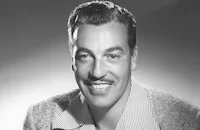
Cesar Romero
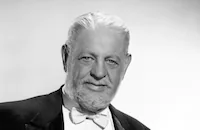
Thurston Hall
Luis Alberni
George Marion Sr.
Adrian Rosley
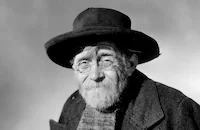
Christian Rub
Franklyn Ardell

Etienne Girardot

Jessie Ralph
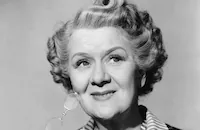
Ruth Donnelly
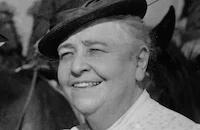
Jane Darwell
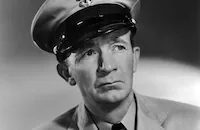
Walter Brennan
Orrin Burke
Louis Becker
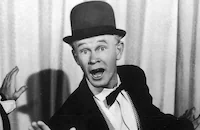
William Benedict
Regina Rambeau
Mary Gordon
John Miltern
Sarah Edwards
Ernie Alexander
Lyons Wickland
Lester Dorr
Gladys Earlcott
Don Brady
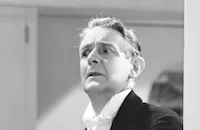
Leonard Carey

Madge Bellamy
Rafael Storm

Max Davidson
Tanagra
Coleen Sword
Pauline Guthrie
Ralina Zarova
Richard Powell
Alfonso Pedroza
Cyril Thornton
William Wayne
Tom Herbert
Jack Gallagher
Paul Mcvey
Hector V. Sarno
Jessie Arnold
Alex Schoenberg
Olaf Hytten

Lee Phelps
Jeannie Roberts
Violet Axelle
Patricia Farr
Don Ostrander
Ludovico Tomarchio
Ben Hall
Sam Flint
Eric Alden
Pat O'malley
Ralph Mccullough
D'arcy Corrigan
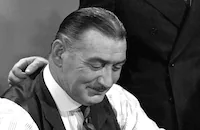
Edward Keane
Matty Roubert
Richard (tex) Brodus
Edward Clayton
Frederick Murray
Marilyn Knowlden
Ferdinand Munier
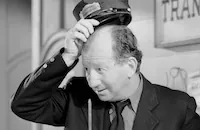
Hank Mann
Betty Farrington
Adrian Morris
Crew
Armando Agnini
Jules Barbier
Vincenzo Bellini
Richard Billings
Georges Bizet
Michel Carré
Richard Day
Freddie Fox
Robert Fritch
William Goetz
Charles Gounod
Ludovic Halévy
Roger Heman
Rudyard Kipling
Ruggiero Leoncavallo
Arthur M. Levy
George Marion Jr.
Pietro Mascagni
Rudolph Maté
Barbara Mclean
Henri Meilhac
Guido Menasci
Bess Meredyth
Bess Meredyth
Paul Neal
Felice Romani
Joseph M. Schenck
George Schneiderman
Oley Speaks
Giovanni Targioni-tozzetti
Jacques Wolfe
Clement Wood
Darryl F. Zanuck

Film Details
Technical Specs

Quotes
Trivia
20th Century Fox's first production (following the merger of 20th Century Pictures and Fox Film Corp).
Notes
The working title of this film was Diamond Horseshoe. It was planned as a production of Twentieth Century before they merged with Fox, and although it was the first production of the new organization, it was the last film Darryl Zanuck produced on the United Artists lot. According to a Hollywood Reporter news item, on the first day of shooting, there was no supervisor listed, as Zanuck was handling the film himself. However, in later production charts, William Goetz is credited as associate producer. After the first day of shooting, Rudolph Maté replaced George Schneiderman as first cameraman, according to Hollywood Reporter. New York Times noted that the character of Ghita Galin "seems to be modeled after one of our front-page divas," and that the film aimed "a savage blow at the Metropolitan Opera Association for its treatment of American singers." Lib states that the film cost over one-half million dollars and came at what May have been the tail end of a heavy opera vogue. According to Hollywood Reporter, this was Lawrence Tibbett's screen comeback after three years' absence. In the film, he sang "On the Road to Mandalay," which he was famous for singing in concert and on the radio. According to a Hollywood Reporter news item, E. Y. Harburg and Harold Arlen wrote the song "Last Night When We Were Young" for Tibbett and Virginia Bruce to sing in the film. That song, however, was not in the final film.












